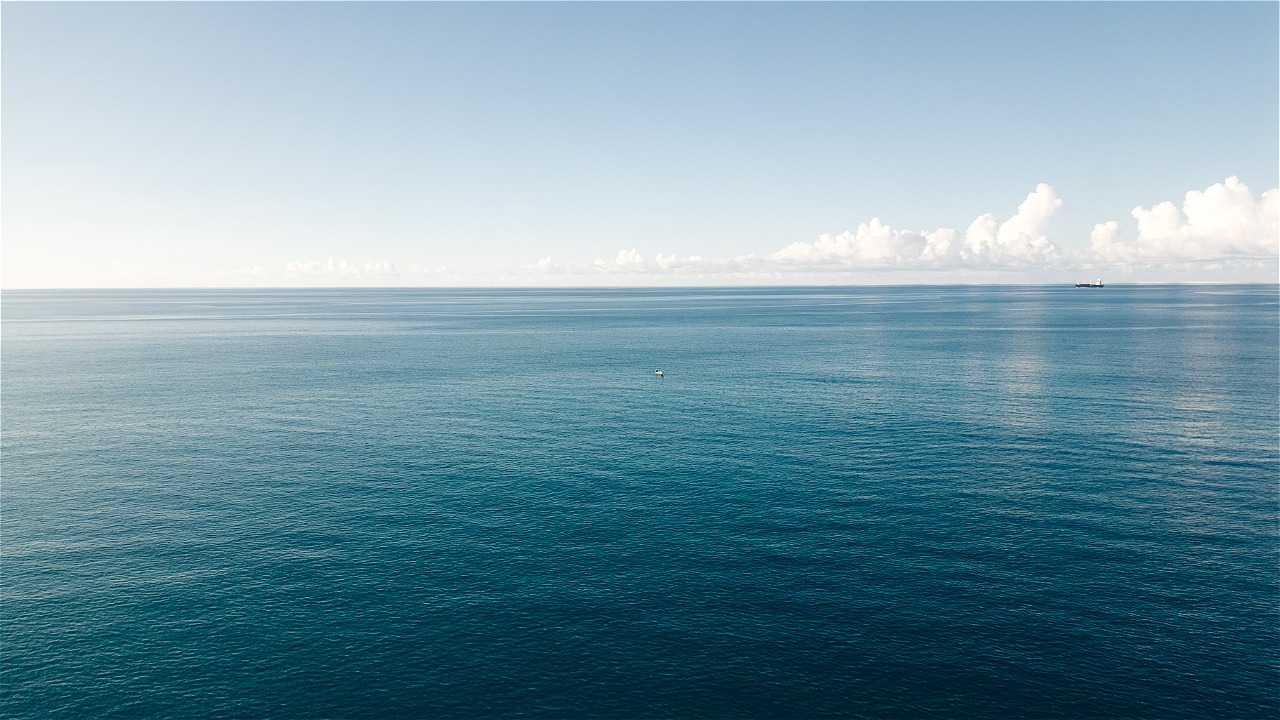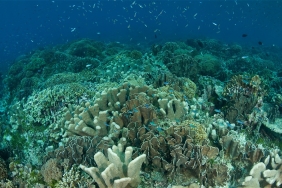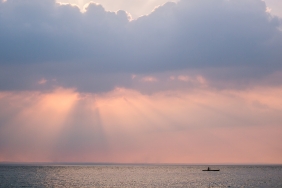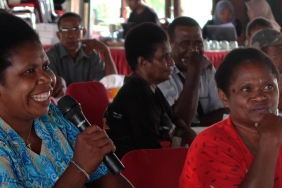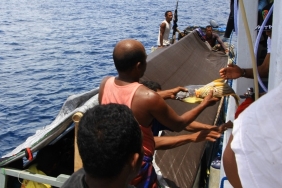BACK RICHER THAN ALOR
By: Annisa Ruzuar (Communication Advisor for Responsible Marine Tourism and Sustainable Seafood WWF-Indonesia)
Four traditional stilt houses on a white sandy beach greeted us as we arrived on Sika Island, Alor, East Nusa Tenggara. "Cast away" said one of the trip participants. Quiet and beautiful, there was no one else but our group and a family of island guards. Sika Island was the first stop on a community-based tourism trip in Alor organized by WWF-Indonesia and Jelajah Biru.
As part of the Regional Marine Conservation Area (MPA), Sika Island is the perfect place to introduce marine and aquatic ecosystems to trip participants. Together with fishermen assisted by WWF-Indonesia, we walked leisurely through the dense mangrove forest while looking at fish and crab children among the roots. Apparently, apart from being able to withstand abrasion and filter pollutants, mangroves are home to marine life.< br />
Unfortunately, it's not only fish fry that are in the mangrove roots, some plastic bottles and straws are also stuck there. While picking up trash in the mangrove forest, the WWF-Indonesia and Jelajah Biru team explained that plastic takes hundreds of years to decompose. Plastic waste accumulates and pollutes the seabed and beaches located far from the original dumping site. Marine life such as sea turtles and even giant whales can also be injured and killed by plastic waste.
Fortunately, the participants have very good environmental awareness. To reduce waste when traveling, they bring reusable equipment. In addition to tumblers, they also brought glass and bamboo straws. With the use of 4 tumblers and 4 reusable straws, during the 4-day trip participants can reduce plastic waste by 60 plastic bottles of mineral water and 40 plastic straws.
Not only trying to reduce waste, participants of this educational tour also helped the Friendship Love Group plant mangroves in Kabola. While enjoying sweet potatoes and corn as well as fresh fish, participants heard the group's story about the threat of high tides in locations that are no longer protected by mangroves. Sure enough, the tide stopped not far from the house where we were enjoying traditional snacks that afternoon.
To get to know Alor better, participants were invited to visit the seaweed cultivation site of the community assisted by the Alor Seaweed Forum (FoRLA). Apparently this activity became one of the participants' favorites. Against the backdrop of the setting sun, they installed ropes of seaweed seedlings according to the lanes that had been prepared. The farmer who accompanied them that day told them about the positive impact of seaweed farming on the community and about his children who have gone to university.
Stories and interactions with communities assisted by WWF-Indonesia provide a different perspective for participants of Jelajah Alor. The concept of "responsible marine tourism (RMT) " which is quite foreign and seems complicated becomes easier to understand. By applying the three principles of RMT-preserving nature, respecting culture and supporting the local economy-tourism activities have a deeper and more memorable meaning.
Being a responsible traveler is not difficult. It can start with simple things like using reusable items, not littering and damaging the locations visited, finding out how to interact with wildlife, and respecting traditional rules. Not only will you have fun and take pictures in beautiful locations, you'll come back richer with useful experiences.

